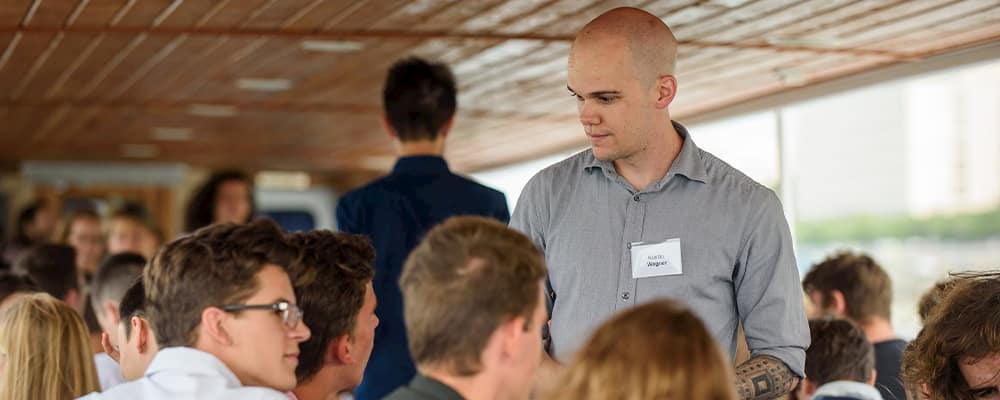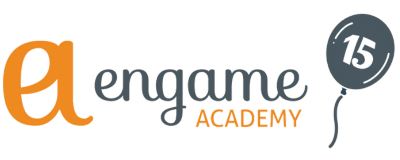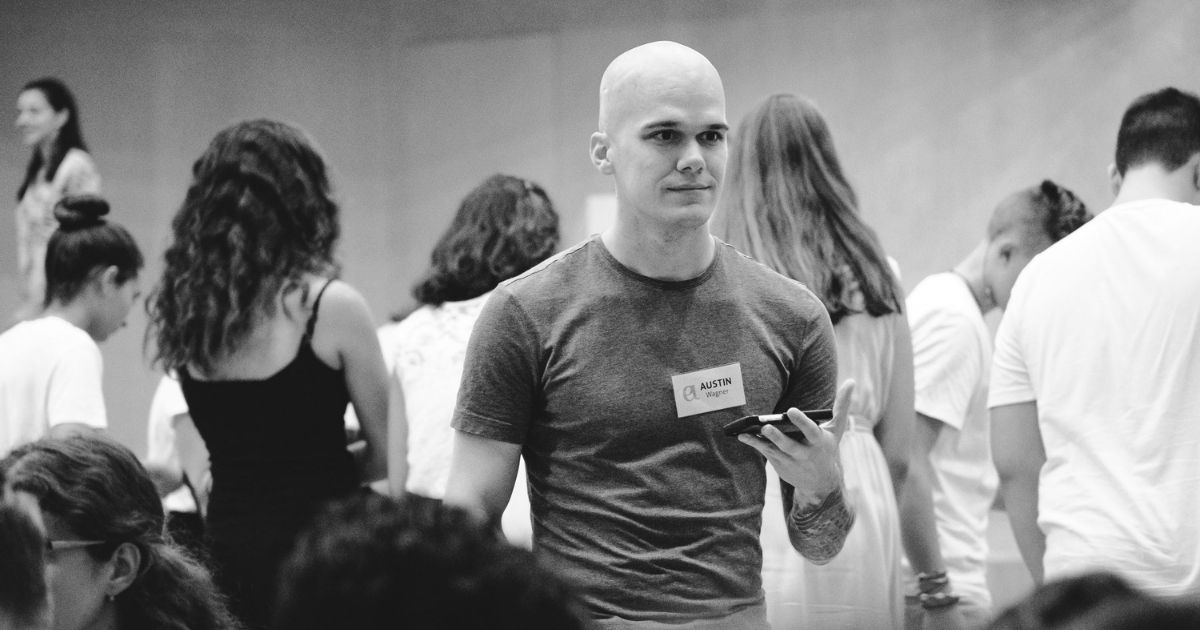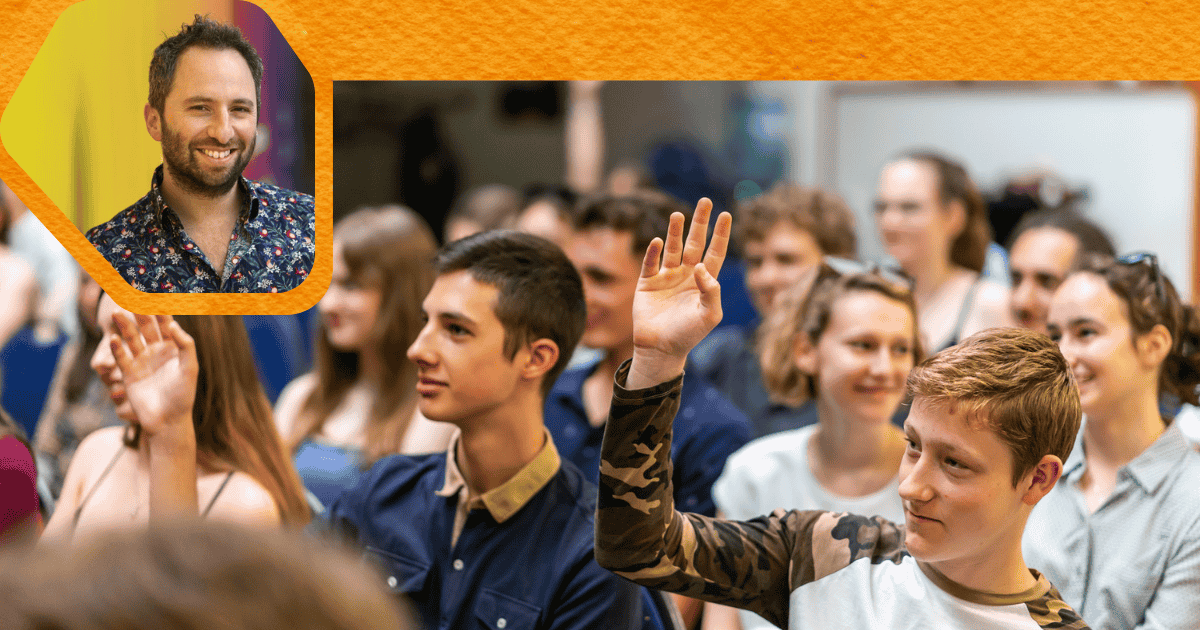Az alábbiakban Austin Wagner szemináriumvezetőnkkel, a tizenegyedikeseknek szóló Junior évfolyamunk koordinátorával készült korábbi interjúnkat olvashatod a 2018-ban szervezett “Mathematics Without Mathematics” címet viselő kurzusa kapcsán.
Az interjút eredeti nyelven, angolul közöljük.
Where and why did you study Math?
I studied math at Augsburg University, a small liberal arts college in Minneapolis, MN. Originally I couldn’t decide between math and art, but I eventually thought math would probably create more opportunities for me. But after my first semester, I found some topics that I really fell in love with, and from then on I studied it because I enjoyed it and loved getting into the philosophical side of mathematics.
In the syllabus of your seminar you mentioned 5 exact topics, which one is your favorite and why?
My favorite topic is the philosophy of mathematics. Most people think that math is a subject where something is either right or wrong, there’s one correct answer, one correct method, etc. But math can be just as creative and beautiful as any artistic field, and exploring what we can and can’t do in mathematics, where it comes from, and even such a fundamental question as what it actually is is endlessly fascinating and challenging.
What kind of students do you recommend your seminar to?
I recommend this seminar for two types of students. First, for those students who say they don’t like math, or find it boring, or don’t like memorizing equations. I hope to get them interested in mathematics through different areas, and to show them it’s more than just numbers and boring equations. On the other hand, I’d also recommend the seminar to students who already enjoy mathematics and excel at it, but want to explore it from a different perspective, and learn about how to understand mathematical concepts from a non-mathy perspective.

What’s your plan for those students who hate Math?
I tell them that math is so much more than what they’ve already studied! It’s not all about memorization and complex equations and confusing symbols. It’s about creativity, problem-solving, understanding how different things relate to one another. It’s more about thinking in a particular way than solving a specific problem – and learning how to applying logical, analytical, critical-thinking skills to all parts of your life is an incredibly valuable skill to develop.
What’s your goal with this seminar? What do you want to achieve?
I want to show students the fun side of math, the cool stuff they probably won’t get to explore in their high school math lessons. I don’t want them to learn about how math is a useful tool for science, everyone knows that – but learning math just because its a tool you need totally misses the fun, interesting, beautiful, paradoxical, fascinating side of the entire subject. So I want to show them why mathematics is valuable for its own sake, and how anyone can understand interesting mathematical concepts, regardless of their background or area of interest.
If you could say just one sentence to the students all around the world who hate Math, what would it be?
„Math can be just as creative and beautiful as art, language, music, or any other field, you just have to give it a chance.”




